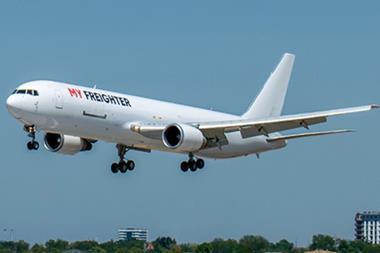Airlines based in the Asia Pacific region enjoyed "robust growth" in air cargo volumes in May, according to the latest statistics from the Association of Asia Pacific Airlines (AAPA).
Figures from the association show air cargo demand in freight tonne km terms increased by 12.2% year on year in May, reflecting positive business and consumer sentiment across advanced and emerging market economies.
The average international freight load factor also rose "significantly", by 4.7 percentage points, to 65.6%, following a "comparatively modest" 4.3% expansion in offered freight capacity.During the first five months of the year cargo demand was up by 10.5%.
Andrew Herdman, AAPA director general, said: "The ongoing pick-up in the global economy, accompanied by increased consumer and investment spending has provided a boost to both international air passenger and air cargo markets. Asian carriers are major players in the global air cargo market, and continue to benefit from the upswing in trade growth.
"The outlook for both air passenger and air cargo markets remains positive, supported by broad-based expansion across sectors. However, airline profitability remains constrained by competitive yield pressures and higher operating costs. Fuel prices, in particular, have risen by 38% to average US$53 per barrel during the first five months of the year.
"Given the still challenging operating environment, airlines remain focused on disciplined cost management efforts throughout the business, whilst pursuing further growth opportunities."
The level of cost cutting amongst Asian airlines was evident in May when the region’s biggest carrier Cathay Pacific announced plans to axe 600 headquarter jobs. It has also cut the cargo director role.
Meanwhile, Singapore airlines announced last week that SIA Cargo would be rolled back into the parent company to improve efficiency through greater synergy with the wider group
And rumours continue to circulate that some of China’s major airlines could be merged, with their cargo units spun-off as separate entities.










